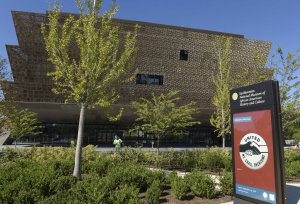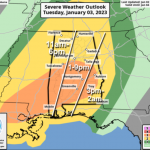BY TIMOTHY E DASHIELL, Capital News Service
BALTIMORE — In Baltimore City, the Maryland community with the highest numbers of needy students and the most demand for experienced teachers, the salaries of teachers with a master’s degree decreased from 2010 to 2020 to the lowest in the state, according to data from the Maryland State Department of Education.
The average salaries for Baltimore teachers with a master’s degree declined from $72,758 in 2010, when it was among the middle of pay for such teachers in the state, to $64,405 in 2020, the data shows. The salary was more than $8,000 lower than what teachers with master’s degrees were paid in Garrett County, the next lowest pay for a Maryland school district.
It is a far cry from the earnings of teachers with master’s degrees in 2020 in Montgomery County, who made the highest salary in the state at $108,108, Baltimore County at $95,454, Prince George’s County at $95,636 or Anne Arundel at $90,811, according to the state’s data.
From 2010 to 2020, every Maryland school district except Baltimore City experienced increases in salaries for teachers with a master’s degree, according to state data. Montgomery County Public Schools teachers saw an 11.5% increase. Salaries for teachers with master’s degrees increased by over 15% in Baltimore and Prince George’s counties, by 10.7% in Anne Arundel County and by 3.8% in Frederick County.
Baltimore City teachers with master’s degrees experienced an 11.4% decrease.
Flourish logoA Flourish chart
Additionally, salaries for beginning Baltimore City teachers, those with bachelor’s degrees and a standard professional certificate, have also fallen dramatically behind other Maryland school systems, according to the state data.
In 2000, a beginning teacher in Baltimore City earned $51,996, which was then the highest salary of any starting teacher in Maryland, the data shows. Over the next 20 years, salaries for those teachers rose a mere $2,695 to $54,691 and ranked 20th among the state’s 24 school systems.
In that same time frame, teacher salaries increased by over $17,000 in Baltimore County, by over $20,000 in Howard, Montgomery and Prince George’s counties and by over $34,000 in Cecil County. Baltimore City was the only school system not to see an increase of at least $10,000 over that 20-year period, according to state data.
Flourish logoA Flourish chart
Capital News Service reached out beginning in October to Sherry Christian, the Baltimore City school system’s media relations manager, and other Baltimore City Public Schools officials for an explanation on how and why Baltimore teachers’ salaries had fallen so dramatically behind other Maryland teachers. Neither Christian nor other officials responded to repeated requests.
Cristina Duncan Evans is the teachers chapter chair for the Baltimore Teachers Union and the union person in charge of negotiating salaries for Baltimore City teachers. Duncan-Evans said she had not heard of the dramatic decline in salaries for teachers with master’s degrees or how far salaries for starting teachers had fallen behind in relation to other Maryland counties until contacted by Capital News Service.
Still, she said, she was not surprised at the findings.
Duncan-Evans explained that school systems in Maryland recruit beginning teachers largely from outside their counties, so they need to offer attractive salaries.
“It’s a very competitive market,” she said. “If you don’t keep up with the other school systems, you are going to fall behind. It’s a sign that our district has not put much effort in competing with other counties. We’ve been fighting with the district to increase salaries for beginning teachers, but they haven’t made that a priority.
“It’s a position that impacts our students,”
The highest rate of turnover among Baltimore City teachers is among beginning instructors, she said. More than one of every three Baltimore City school teachers have been in the classroom five years or less, according to the Fund for Educational Excellence 2021-2022 survey.
The salaries for Baltimore City teachers with master’s degrees began to decline the same year the city’s public school system began using a new way to determine teacher’s salaries called the Career Pathways System, state data shows.
The system, which was agreed upon by Baltimore City Public Schools and the Baltimore Teachers Union, is a departure from a traditional pay system that rewards teachers for experience and educational attainment.
Duncan-Evans said she also wasn’t surprised that salaries for master’s teachers had declined. They decreased, she explained because Baltimore City teachers’ “contract doesn’t compensate for a master’s degree,” as do the reward systems in other Maryland counties”
“We have a system that rewards professional development and relies on a peer reviewed portfolio and teacher evaluations to advance,” she said. “Teacher evaluations are the single biggest way that people move in our system.”
According to the city school’s website, the structure allows teachers in Baltimore City to “take control of their careers and grow within a system of career pathways and salary intervals.” Movement from one pathway to the next is determined by “peer reviews that weigh instruction, leadership, continual learning and student growth,” the website said.
For years, teachers in Maryland and other states pursued master’s degrees in part because the additional education was rewarded by school systems through a significant increase in pay.
Duncan-Evans said the teachers’ union and the school system decided in 2010 to stop rewarding teachers solely for achieving a master’s degree because some studies showed it doesn’t necessarily mean teachers become better at their jobs.
Most other Maryland school systems continue to reward teachers financially after they earn a master’s degree.
“Just because they do it, doesn’t mean they are right,” Duncan-Evans said.
But she also agreed that the decision by the Baltimore City school system doesn’t mean the other Maryland school systems are wrong.
The Maryland State Board of Education requires all public school teachers to complete a master’s degree after 10 years of teaching.
Despite the differences in pay for Baltimore City teachers and those other counties, a survey of Baltimore teachers conducted at the end of the 2021-22 school year found Baltimore teachers are largely satisfied with their pay.
“The salary they can earn under the Career Pathways for Teachers model and the benefits package are major factors in overall teacher satisfaction,” teachers told surveyors for the Fund for Educational Excellence. “Several teachers say that they would not be able to find a teaching job that pays as well in any of the neighboring school districts; a move would mean having to leave the classroom for an administrative position.”
Duncan-Evans, however, said the study also showed opinions more evenly split on salaries.
“Teachers said compensation was just as much an issue for leaving (the school system) as it was a reason for staying,” she said.
The challenges of teaching in Baltimore City schools and the needs of the system’s children have been well documented. For example, of Maryland public schools ranked by percentage of students who qualify for free lunch, 40 of the top 75 were in Baltimore City, according to Public School Review, a service that provides information on public schools using data from federal and state education agencies.
Tonya Shelby is graduate program professor and advisor at Towson University’s College of Education where she teaches undergraduate students and current teachers who are working towards a masters’ degree.
.“I tell my students that teachers with that masters level knowledge can bring so much perspective to a struggling school.” she said.
Teachers with master’s degrees make better teachers and they also can help other teachers work through problems with their classes, Shelby said.
Dwayne, a Baltimore City school teacher who asked to use his middle name, because of privacy concerns, said the many issues Baltimore students grapple with unrelated to education are why it is important to have teachers with master’s degrees.
“For some of these kids, school is the last thing on their minds,” Dwayne said. “Some of them have a toxic home life and others can’t even tell you the next time they’re going to eat an actual meal.”
Dwayne, who has his master’s degree and has been a teacher for over a decade, said the extra challenges that come with teaching kids in Baltimore may be too much to handle for younger, inexperienced teachers. He said reasons like that are why teachers with master’s degrees should be of high value to any school system.
“For someone without that extra education or preparation, it can get very easy to just give up,” he said. “So, you need the veterans around just to keep morale up on staff. You gotta keep those people around.”
Dr Thurman Bridges, a professor in the School of Education and Urban Studies at Morgan State University, agrees.
“In Baltimore City and other struggling districts, there is a huge benefit to having (master’s degree) teachers that have been there a while.” Bridges said “They have valuable relationships with the students, parents and have built that trust within the community.”
Capital News Service reporters Lyna Bentahar, Mythili Devarakonda and Abigail Zimmardi contributed to this story.
Help us Continue to tell OUR Story and join the AFRO family as a member –subscribers are now members! Join here!
The post Baltimore City teachers salaries fall to lowest in state appeared first on AFRO American Newspapers .











